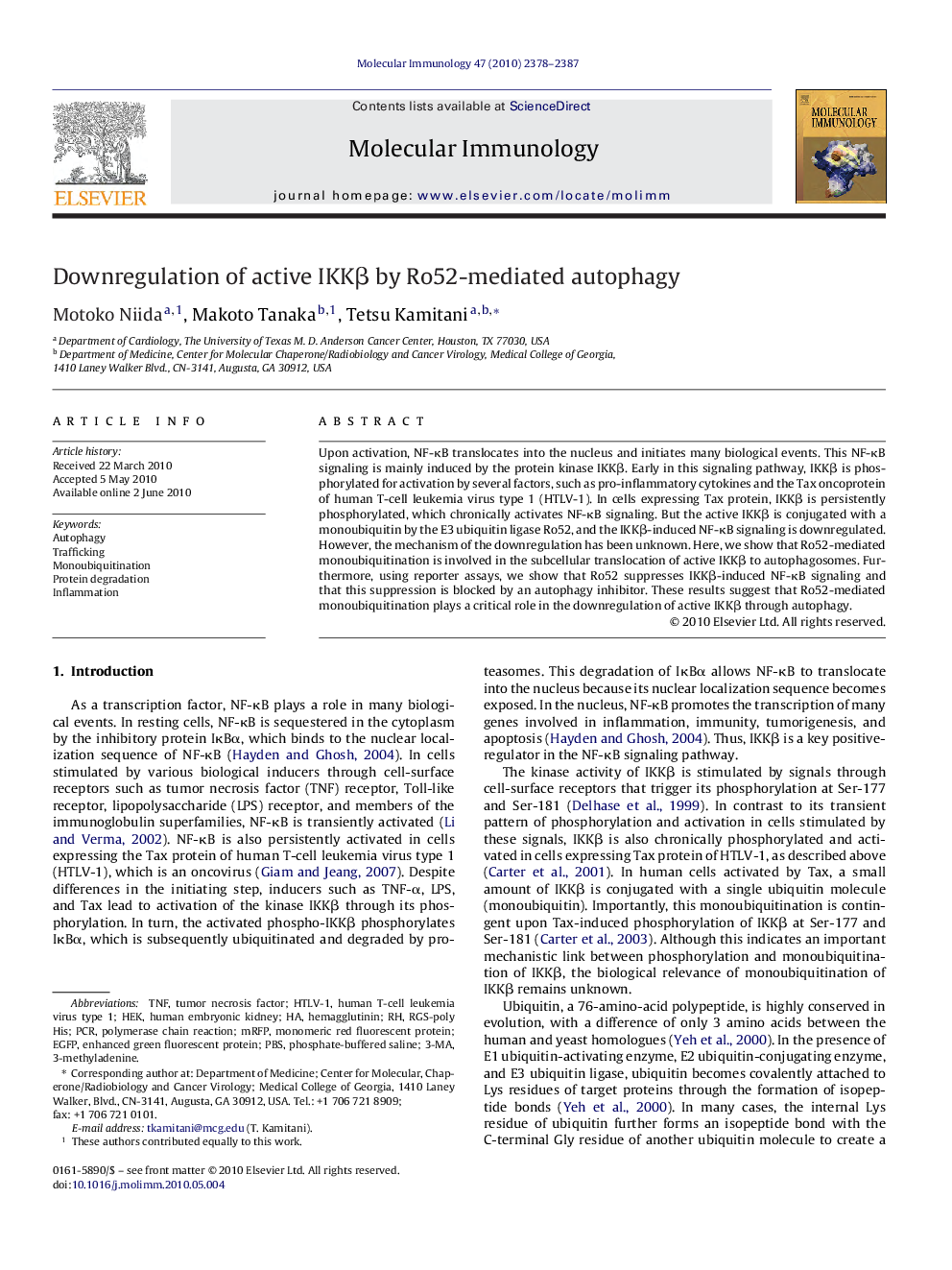| Article ID | Journal | Published Year | Pages | File Type |
|---|---|---|---|---|
| 5917864 | Molecular Immunology | 2010 | 10 Pages |
Abstract
Upon activation, NF-κB translocates into the nucleus and initiates many biological events. This NF-κB signaling is mainly induced by the protein kinase IKKβ. Early in this signaling pathway, IKKβ is phosphorylated for activation by several factors, such as pro-inflammatory cytokines and the Tax oncoprotein of human T-cell leukemia virus type 1 (HTLV-1). In cells expressing Tax protein, IKKβ is persistently phosphorylated, which chronically activates NF-κB signaling. But the active IKKβ is conjugated with a monoubiquitin by the E3 ubiquitin ligase Ro52, and the IKKβ-induced NF-κB signaling is downregulated. However, the mechanism of the downregulation has been unknown. Here, we show that Ro52-mediated monoubiquitination is involved in the subcellular translocation of active IKKβ to autophagosomes. Furthermore, using reporter assays, we show that Ro52 suppresses IKKβ-induced NF-κB signaling and that this suppression is blocked by an autophagy inhibitor. These results suggest that Ro52-mediated monoubiquitination plays a critical role in the downregulation of active IKKβ through autophagy.
Keywords
HTLV-1PBSmRFP3-MATNFHEKeGFP3-methyladenineAutophagyinflammationProtein degradationtumor necrosis factorTraffickingPhosphate-buffered salineMonoubiquitinationhemagglutininpolymerase chain reactionPCRHuman T-cell leukemia virus type 1enhanced green fluorescent proteinmonomeric red fluorescent proteinhuman embryonic kidney
Related Topics
Life Sciences
Biochemistry, Genetics and Molecular Biology
Molecular Biology
Authors
Motoko Niida, Makoto Tanaka, Tetsu Kamitani,
